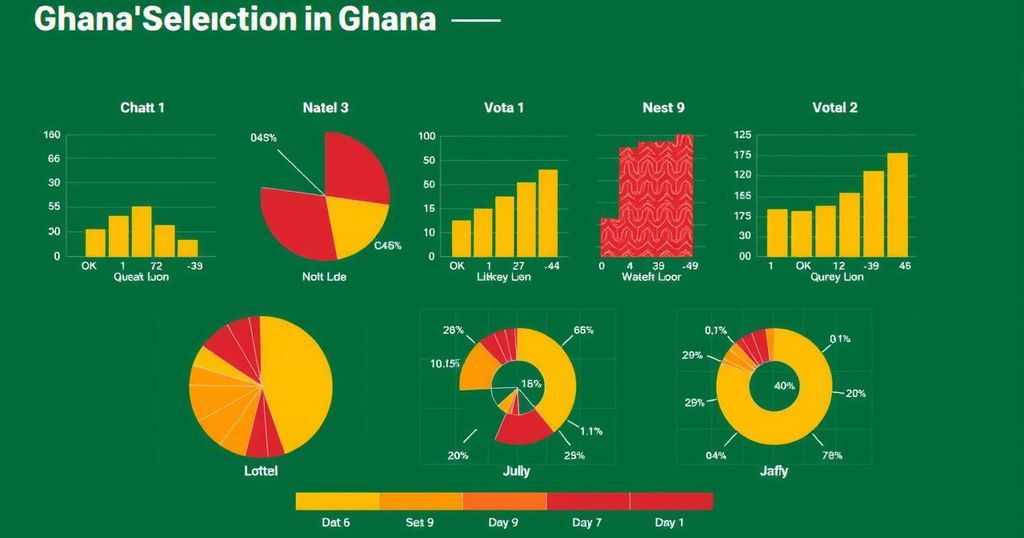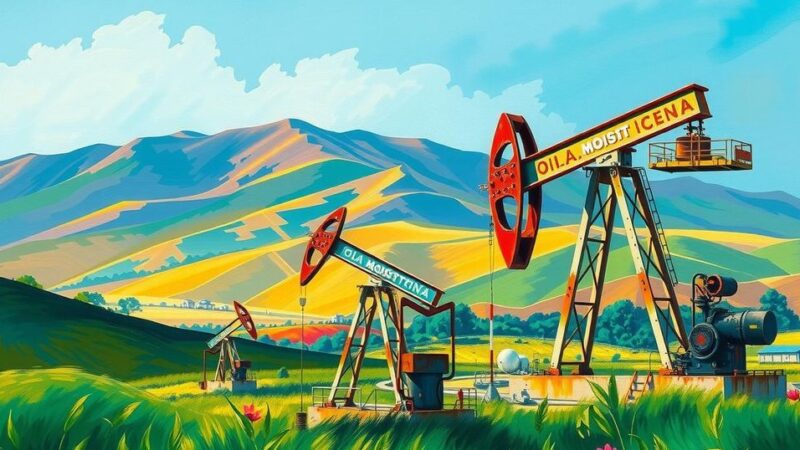As Ghana approaches its ninth general election, economic issues dominate voter concerns, including high inflation, significant debt, and rising youth unemployment. The NPP seeks a third consecutive term amid frustrations over living standards and resource management. The implications will reverberate through Ghana’s democratic landscape as it heads into the December 7 election.
As Ghana approaches its ninth general election since the reinstatement of multiparty politics in 1992, several pressing issues are dominating the minds of voters. The forthcoming election offers the New Patriotic Party (NPP) an opportunity for a historic third consecutive term. Voters are increasingly concerned about the nation’s economic stability, which has been severely impacted by global inflation that surged in early 2022, causing prices to rise at rates not seen in over 20 years. The annual inflation rate peaked at 54.1% in December 2022, and although it has subsequently decreased, the prices of essential items such as eggs and tomatoes have more than doubled compared to the previous year, contributing to heightened poverty levels and deteriorating living standards.
In addition to inflationary pressures, Ghana defaulted on its debt repayments in 2022, leading to complex negotiations with international lenders for loan restructuring. The government sought assistance from the International Monetary Fund (IMF) to initiate a bailout program. President Nana Akufo-Addo acknowledged the severe economic crisis but attributed blame to external factors, while opposition voices pointed towards governmental mismanagement as a primary cause. The debt situation has become increasingly dire, with over 70% of government revenue now allocated to servicing debts, a trend that has escalated over the past two decades.
Young voters represent a significant demographic, particularly as the unemployment rate has surged, with current statistics indicating that one in seven Ghanaians is jobless, and nearly 30% of youth aged 15 to 24 are without work. Concerns surrounding economic prospects are paramount, especially among younger generations, whose perspectives may critically influence the election outcome.
Ghana’s economy heavily relies on its natural resources, particularly gold, which constitutes a vital foreign exchange earner, with exports reaching $5.2 billion in 2023. However, illegal and small-scale mining practices have incited public discourse regarding environmental degradation. Alongside gold, Ghana contributes significantly to the global cocoa market, further emphasizing its resource-rich status.
Historically, elections in Ghana have been largely peaceful and closely contested, garnering recognition as a stable democracy in a region otherwise fraught with political instability. Voter decisions often hinge on immediate circumstances rather than long-term economic trajectories. Hence, the outcome of the December 7 election is awaited with keen interest, as it may reflect citizen responses to ongoing economic challenges and policy directions.
Ghana has celebrated a return to multiparty politics since 1992, marking its ninth general election in a system characterized by democratic engagement and peaceful transitions of power. The National Democratic Congress (NDC) and the New Patriotic Party (NPP) have alternated control over the presidency, each serving 16 years. This election cycle is particularly critical as voters contend with stark economic realities, including unprecedented inflation and rising unemployment rates, amidst the backdrop of Ghana’s rich natural resource base and historically contested elections that highlight the significance of public sentiment in shaping political outcomes.
In summary, Ghanaian voters are grappling with pressing economic issues as they prepare for the upcoming election, including rampant inflation, increasing debt, and rising unemployment, particularly among youth. The NPP’s bid for a third consecutive term will be tested against public discontent over living conditions and environmental concerns surrounding mining. The outcome of the December 7 election will not only reflect the electorate’s priorities but also the broader implications for Ghana’s democratic stability and economic strategy moving forward.
Original Source: www.bbc.com






